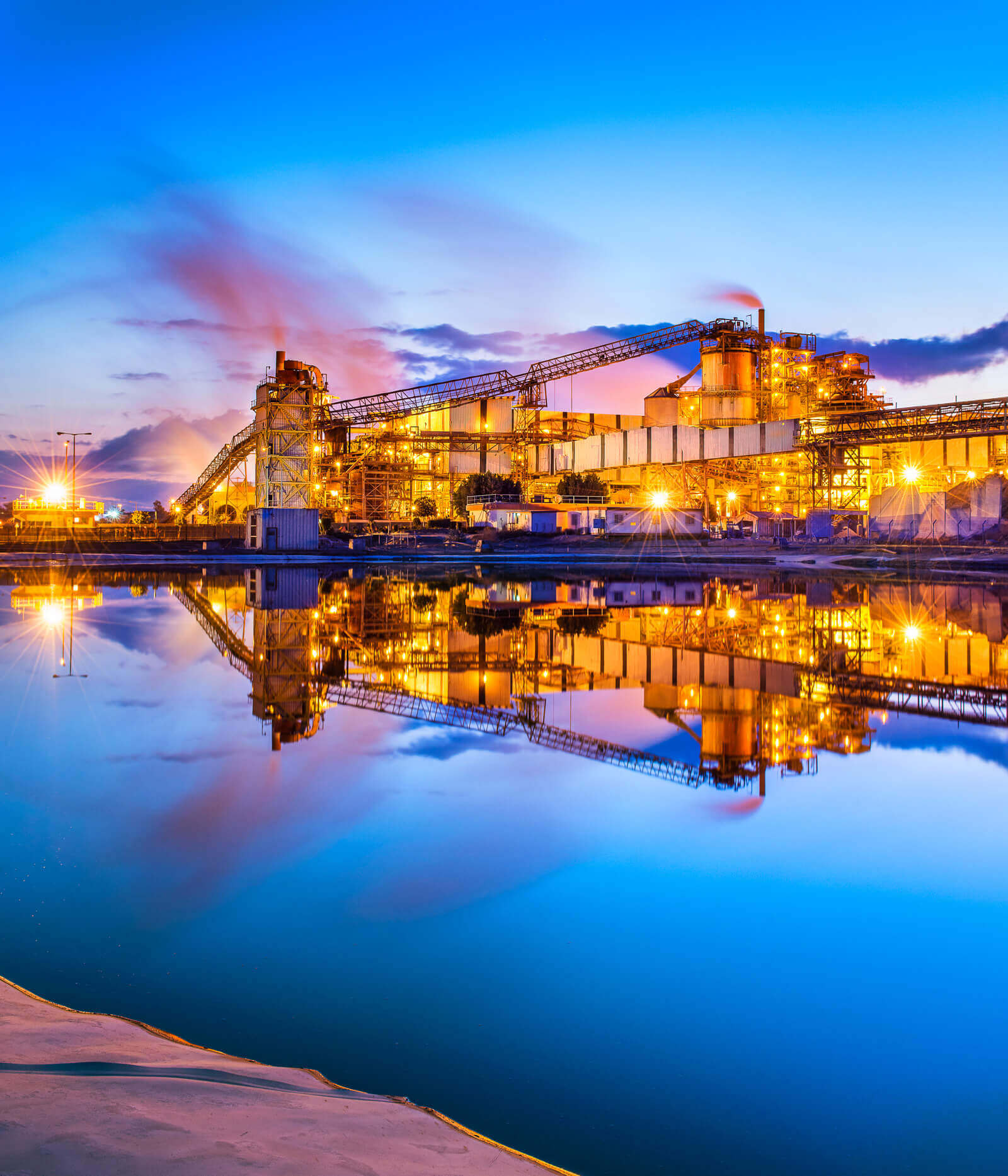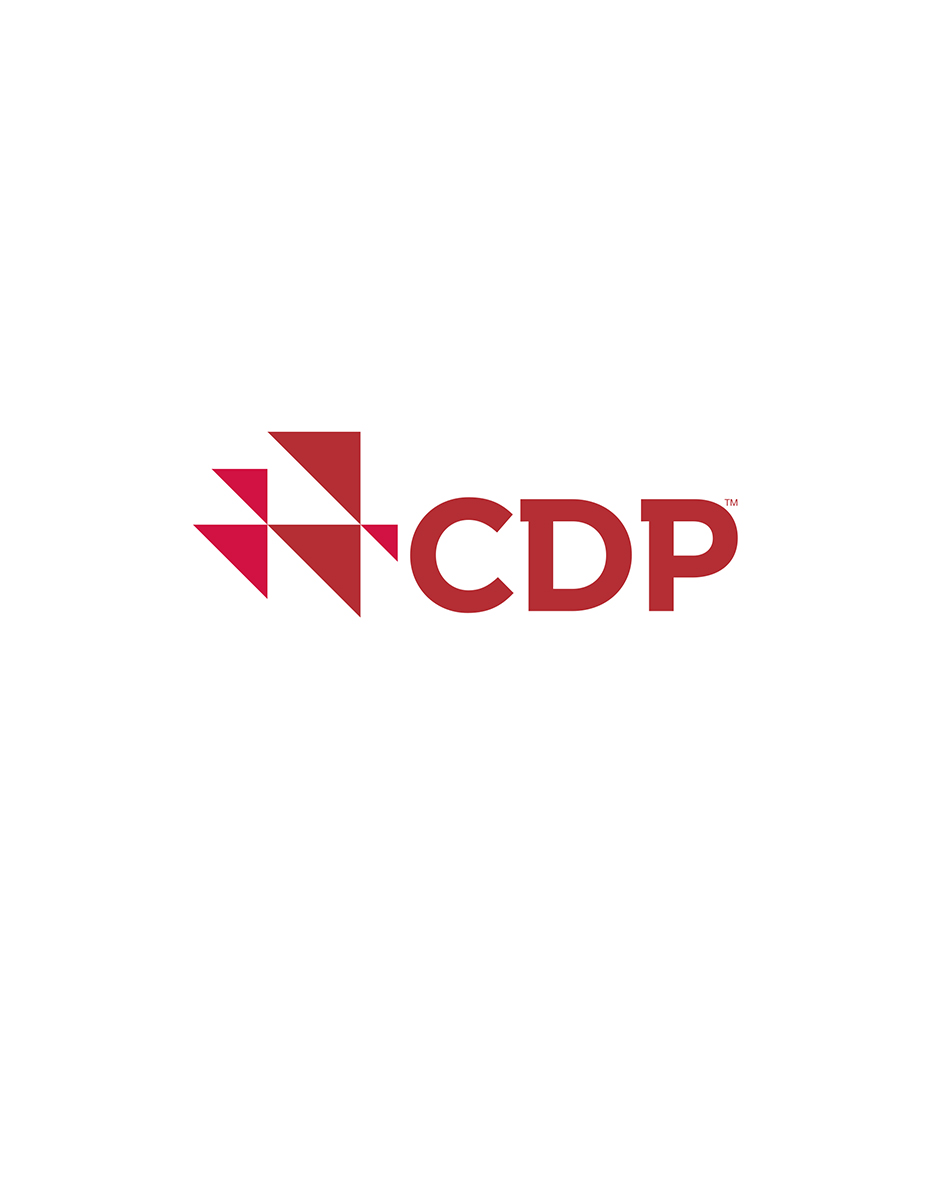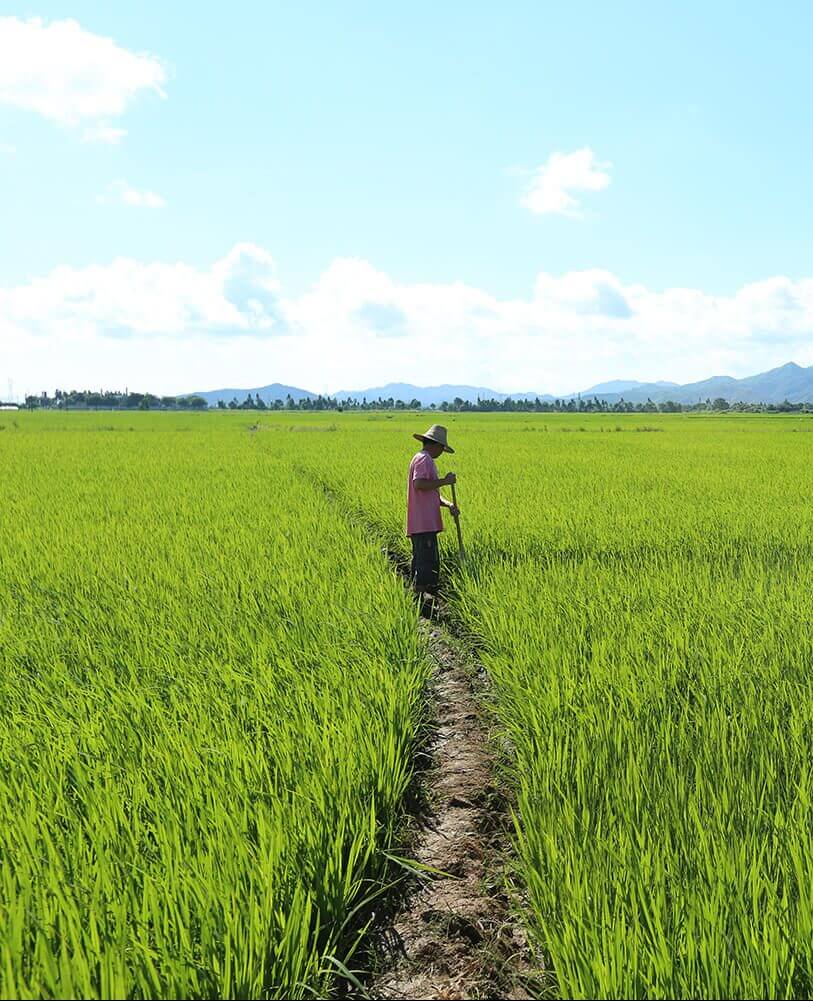GHG & Climate Change
As part of ICL’s sustainability vision for 2030, ICL has ambitious targets for climate action. These include achieving a 45% reduction in the company's overall Scope 1+2+3 emissions by 2030 (using 2008 as its base year), and a 3% YOY (year-on-year) reduction from 2019 and onwards.
Climate change, or global warming, refers to the rise in average surface temperatures on Earth. Climate change results primarily from the use of fossil fuels, which releases carbon dioxide and other greenhouse gases into the air. These trap heat within the atmosphere, which can have a range of effects on ecosystems, including rising sea levels, severe weather events, droughts and others.
By 2019, ICL’s Global GHG emissions have been reduced by 24% compared with 2008 base year emissions. This constitutes 53% of our planned decrease by 2030.
The company has taken various measures to continue reducing its GHG emissions. The main steps already taken and/or planned for the upcoming years include:
- Eliminating or reducing process GHG emissions: ICL’s replacement of SF6, previously used as a protective gas during magnesium production, with HFC134a, caused a major reduction at ICL Dead Sea Magnesium. The company has also implemented an innovative system which has reduced N2O emissions at ICL Haifa (F&C) by 60% per ton nitric acid produced. Both projects were approved by the U.N. CDM mechanism.
- Converting our production plants in Israel to the use of natural gas: Natural gas (NG) offers many environmental benefits, including lower emission of greenhouse gases per unit of energy produced.
- Increasing energy efficiency: ICL is phasing out inefficient production technologies, streamlining our production facilities, increasing the efficiency of our consumption of heat and steam, using residual heat and reducing our consumption of lighting and air conditioning.
- Renewable Energy Usage: As part of ICL’s sustainability vision for 2030, the company has set the goal of annually increasing its total renewable consumption by 20% (year-on-year) from 2019 and onwards, increasingly replacing fossil-fuel based energy. ICL has therefore transitioned most of its sites in Europe to 100% renewable electricity in 2018-19. Furthermore, in the upcoming years, the company plans to install photovoltaic (solar energy) electricity production capacity in available and appropriate areas within the operational boundaries of its sites in Israel, Spain, Germany and additional countries.
- The future elimination of Oil Shale combustion: For several decades, ICL Rotem (Israel) has been operating PMA, a CHP (combined heat and power) installation, which is fueled by Oil Shales, extracted as part of Rotem’s open-pit Phosphate mining activity. The usage of Oil Shales was originally encouraged by the Israeli government, as a then alternative fuel source to oil. However, since that time- large NG reserves were found in Israel’s maritime territory, and Oil Shales is now considered an unfavorable fuel source, due to the relatively high amounts of air and GHG emissions it creates upon combustion. ICL Rotem has recently completed a plan to shut down the PMA Oil Shale installation by the end of 2021. The needed electricity and steam will be produced from newer NG based installations, creating a significant reduction in GHGs and other emissions.
Note: In the chart below, 2008 appears as the base year used by ICL to measure our long-term performance (in addition to short-term, year by year performance).
Following are the yearly trends in total GHG emissions by scope (all converted into CO2e terms). ICL’s comprehensive GHG inventory analysis is based on the GHG Protocol methodology. The measured emissions include the following GHG’s: CO2 , CH4, N2O and HFCs/HCFCs. In 2008 emissions specifically, SF6 is also included, but its usage has since been stopped by ICL (see above), and from 2010 and onwards- there are zero emissions of SF6 in all ICL global operations. In all years, ICL has zero consumption/emission of PFCs and NF3.
Global GHG emissions (scope 1+2+3)
2019 GHG emissions by regions
| Global | Israel | Outside Israel | |
|---|---|---|---|
| Total GHG Emissions | 3,194,309 | 2,198,489 | 995,819 |
| Scope 1 (tonne CO2e) | 2,496,315 | 1,948,350 | 547,965 |
| Scope 2 (tonne CO2e- market based) | 612,199 | 169,553 | 442,646 |
| Scope 3 (tonne CO2e) | 85,794 | 80,586 | 5,208 |

ICL received an “A-”score for its 2019 CDP Carbon report, the best score among all Israeli-based companies and tied for best among global fertilizer producers. This achievement recognizes ICL's advanced climate change management practices and successful endeavors to reduce GHG emissions.
ICL expects its total GHG emissions to decrease in 2020, due to further advancement in the transition of ICL Europe sites to renewable electricity, and due to the decrease in activity in some ICL sites due to the COVID-19 crisis.
Cooperated climate action: striving for a 90% CO2 reduction in the Zeeland province
Several large industrial companies, including ICL Terneuzen, located in Zeeland province in the southwestern Netherlands, have created an ambitious climate plan. The industrial companies, including some of the largest energy consumers in the province, plan to reduce their CO2 emissions by 85% to 90% by 2050, in line with the Paris climate agreement. The Zeeland companies participating in the climate plan include ICL the Netherlands Terneuzen, Yara (located in Sluiskil), Zeeland Refinery (located in Nieuwdorp), Trinseo, Dow Benelux, and Cargill (located in Sas van Gent). Their climate plan was developed together with companies from West Brabant and Flanders and calls for using each others residual heat and waste materials. The companies have drawn up a roadmap with measures needed to achieve this objective. The plan includes storage and recycling of CO2 as well as the use of hydrogen.








